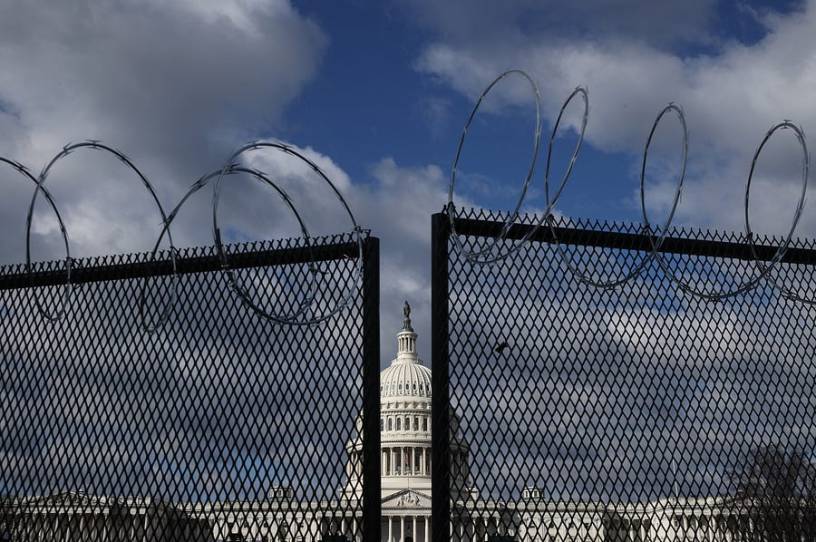Uphill: Congress Kicks Off January 6 Investigations

Good morning and happy Friday. The House is set to vote on Democrats’ nearly $2 trillion coronavirus aid package later today. It is expected to pass narrowly on a party-line vote. It’s the first step in a two-week sprint to try to approve the legislation before federal unemployment benefits expire in the middle of March. We’ll bring you more on that—and the coming Democratic brawl over how to incorporate a version of a federal minimum wage increase (potentially through a tax penalty) now that the Senate parliamentarian has ruled it out of order for the reconciliation bill—next week.
An Honest Oversight Hearing
When we first launched Uphill, I wrote that we would try to highlight when members of Congress do particularly good work. I want to take a moment in this edition to recognize the members of the House Appropriations subcommittee on the legislative branch. Yesterday, this small panel held a hearing to examine the security failures leading up to and during the attack of January 6. Acting U.S. Capitol Police Chief Yogananda Pittman and acting House Sergeant at Arms Timothy Blodgett testified.
The hearing was remarkably refreshing—not because of any kind of commitment to transparency on the witnesses’ part—but because the House members involved approached it with genuine oversight and accountability in mind. The tenor of the hearing and the questions members asked were far more skeptical than a Senate hearing earlier this week with three former security officials who were responsible for protecting the Capitol that day. Instead of simply accepting attempts to deflect blame onto other areas of government, the House subcommittee members pressed the leaders to answer for the massive mistakes they made. They displayed a sense of frustration and anger that matched the moment. They asked direct, important questions to try to establish new facts about the riot and the response. And they didn’t fall for the jargon security officials often use to avoid reckoning with their own actions.
Congressional hearings usually aren’t an effective way to investigate anything. Members use their limited time to deliver unproductive speeches, they don’t always pay attention to what anyone before them has said (so they ask the witnesses the same questions over and over again), and they often aren’t familiar enough with the subject matter to know which witness answers to push back on. It may be a testament to the subcommittee model that yesterday’s hearing, which only featured a few representatives, so outperformed the larger Senate hearing earlier this week. But it also had to do with the members’ stance coming into it: They did not begin with deference to the officials, and they were prepared to ask hard questions. They were also familiar with how the Capitol security apparatus works, and they brought their own experiences and interactions with rank-and-file Capitol Police officers on January 6 to the table.